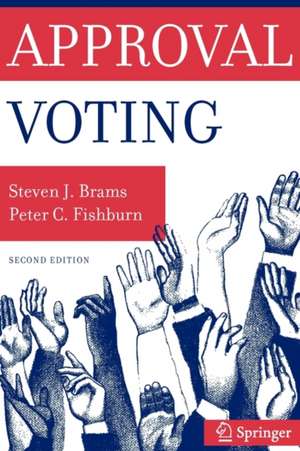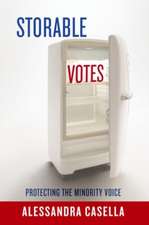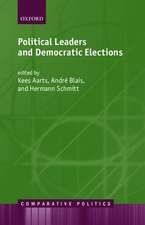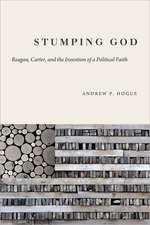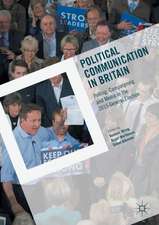Approval Voting
Autor Steven Brams, Peter C. Fishburnen Limba Engleză Paperback – 25 ian 2007
Since the publication of the first edition of this book, its arguments in favor of an election reform practically unknown in 1983 have stood the test of time. Perhaps the proof of the pudding lies in the adoption of approval voting by about a dozen professional societies - several with tens of thousands of members - and their generally favorable experience with it. After a generation of discussion and debate on the subject, the authors remain convinced that "Approval Voting" is as relevant today as it was when rigorous analysis and systematic empirical research on this election reform began more than 30 years ago.
Preț: 580.17 lei
Preț vechi: 682.55 lei
-15% Nou
Puncte Express: 870
Preț estimativ în valută:
111.03€ • 115.21$ • 92.80£
111.03€ • 115.21$ • 92.80£
Carte tipărită la comandă
Livrare economică 17-31 martie
Preluare comenzi: 021 569.72.76
Specificații
ISBN-13: 9780387498959
ISBN-10: 0387498958
Pagini: 198
Ilustrații: XXII, 200 p. 4 illus.
Dimensiuni: 152 x 229 x 10 mm
Greutate: 0.31 kg
Ediția:2nd ed. 2007
Editura: Springer
Colecția Springer
Locul publicării:New York, NY, United States
ISBN-10: 0387498958
Pagini: 198
Ilustrații: XXII, 200 p. 4 illus.
Dimensiuni: 152 x 229 x 10 mm
Greutate: 0.31 kg
Ediția:2nd ed. 2007
Editura: Springer
Colecția Springer
Locul publicării:New York, NY, United States
Public țintă
ResearchCuprins
Introduction: Overview of the Problem and Its Solution.- Sincerity and Strategy-Proofness: Which System Is Most Honest?.- The Condorcet Criterion: Which System Best Finds the Majority Candidate?.- The Reconstruction of an Election under Alternative Rules.- Power and Equity: Which System Is Fairest?.- Deducing Condorcet Candidates from Election Data.- Polls and the Problem of Strategic Information in Elections.- Recent Empirical Examples and Theoretical Extensions.- Deducing Preferences and Choices in the 1980 Presidential Election.- Epilogue.
Recenzii
"This book is the second edition of a classic book. In the preface to this new edition, the authors write: ``We have decided not to revise Approval Voting, except to make minor corrections to the initial text". I can only refer to my review of the first edition and add that I think that, even after nearly 25 years, this is the best place to learn about Approval Voting, a major voting procedure. This is the extemely rare example of a book that does not look its age." --Maurice Salles for Zentralblatt MATH
Textul de pe ultima copertă
Approval Voting proposes a compelling way to elect some 500,000 officials in public elections. Under this system voters may vote for, or approve of, as many candidates as they like in multicandidate elections. Among the many benefits of approval voting are its propensity to elect the majority candidate (rather than the strongest minority candidate, as often occurs under plurality voting), its relative invulnerability to insincere or strategic voting, and—by offering voters the opportunity to influence election outcomes more equitably—a probable increase in voter turnout.
Since the publication of the first edition of this book, its arguments in favor of an election reform practically unknown in 1983 have stood the test of time. Perhaps the proof of the pudding lies in the adoption of approval voting by about a dozen professional societies—several with tens of thousands of members—and their generally favorable experience with it. After a generation of discussion and debate on the subject, the authors remain convinced that Approval Voting is as relevant today as it was when rigorous analysis and systematic empirical research on this election reform began more than 30 years ago.
Since the publication of the first edition of this book, its arguments in favor of an election reform practically unknown in 1983 have stood the test of time. Perhaps the proof of the pudding lies in the adoption of approval voting by about a dozen professional societies—several with tens of thousands of members—and their generally favorable experience with it. After a generation of discussion and debate on the subject, the authors remain convinced that Approval Voting is as relevant today as it was when rigorous analysis and systematic empirical research on this election reform began more than 30 years ago.
Caracteristici
Exposition of a simple and logical potential electoral reform Gives theoretical analysis as well as case studies based on actual elections
